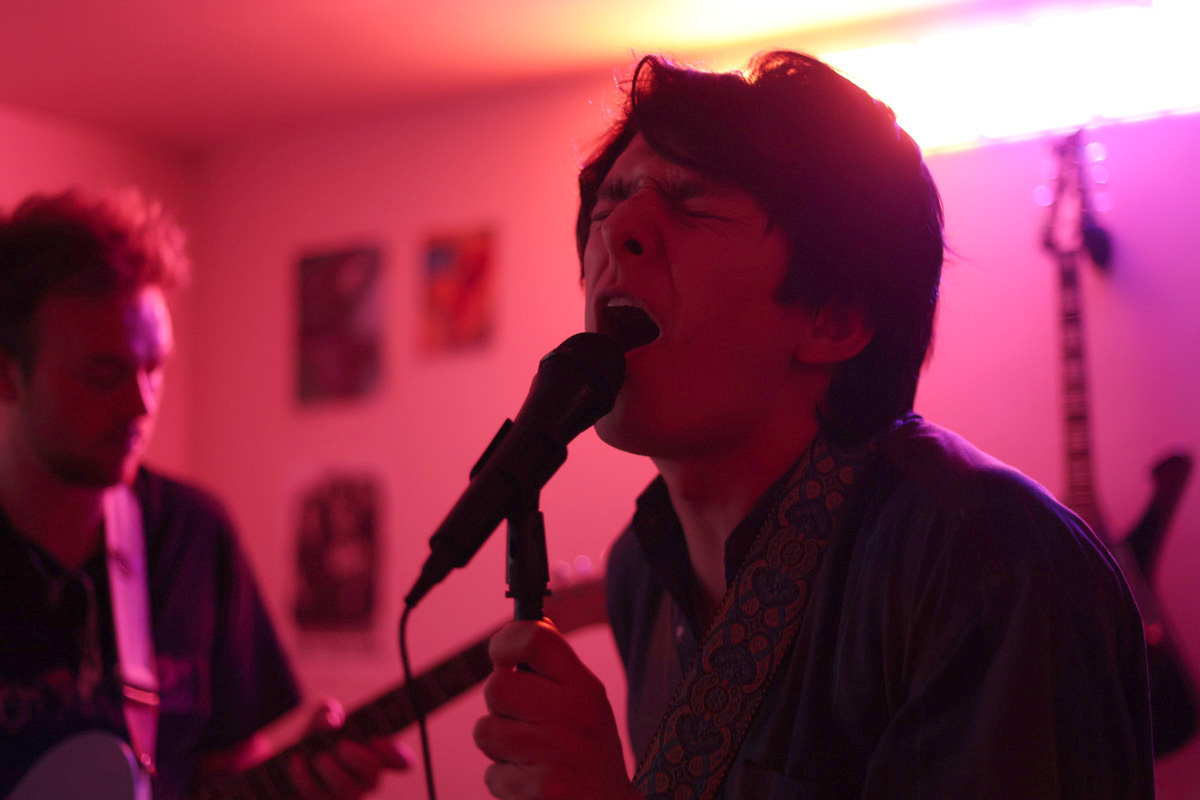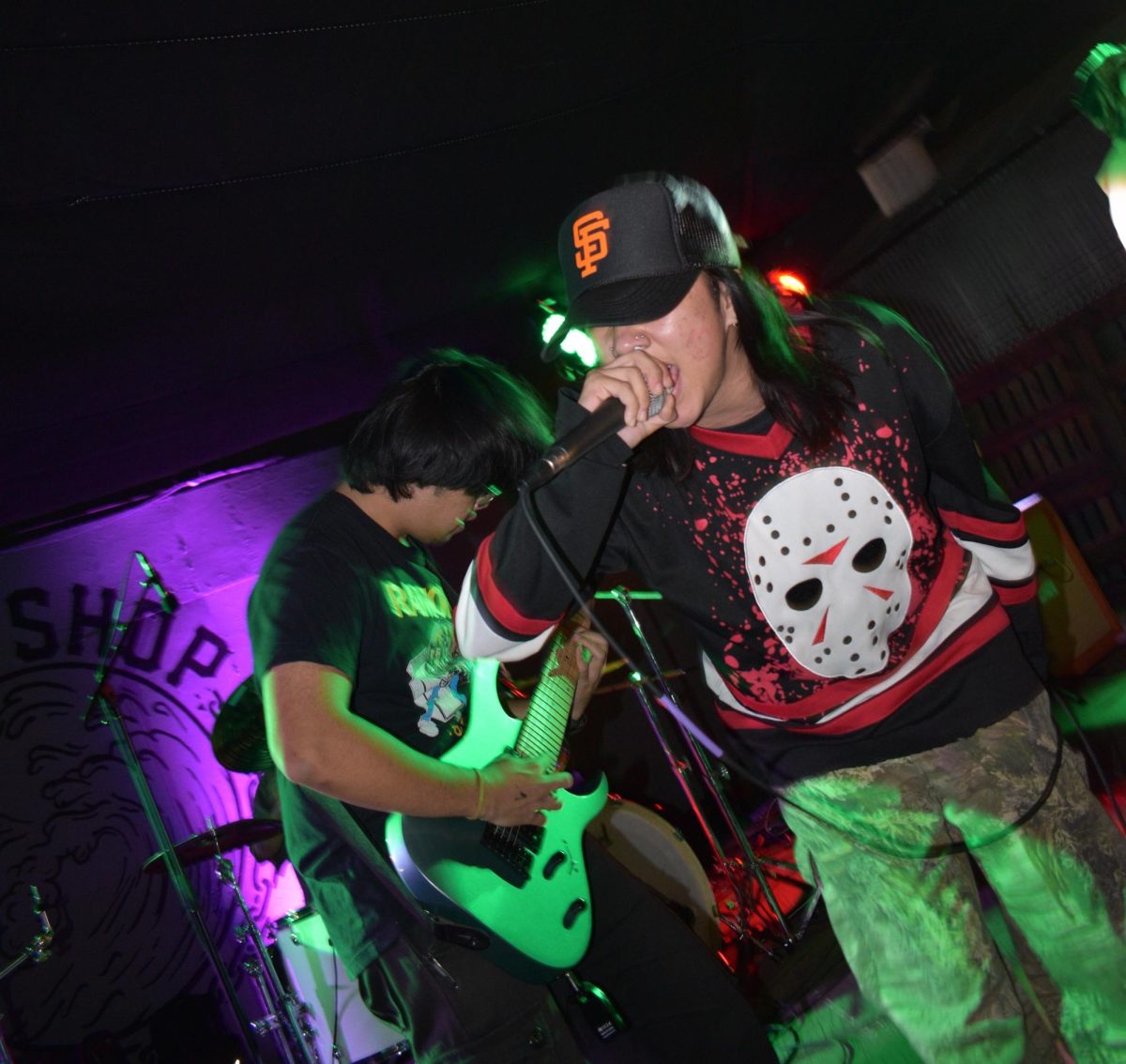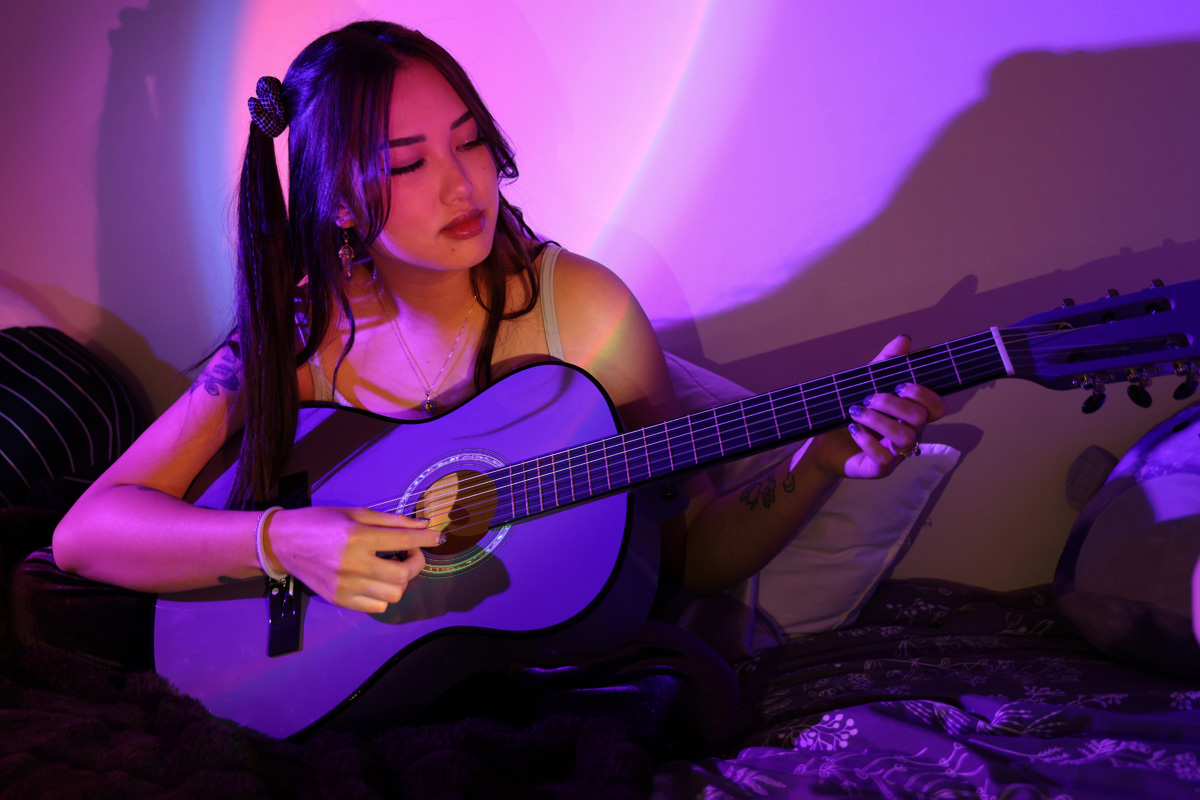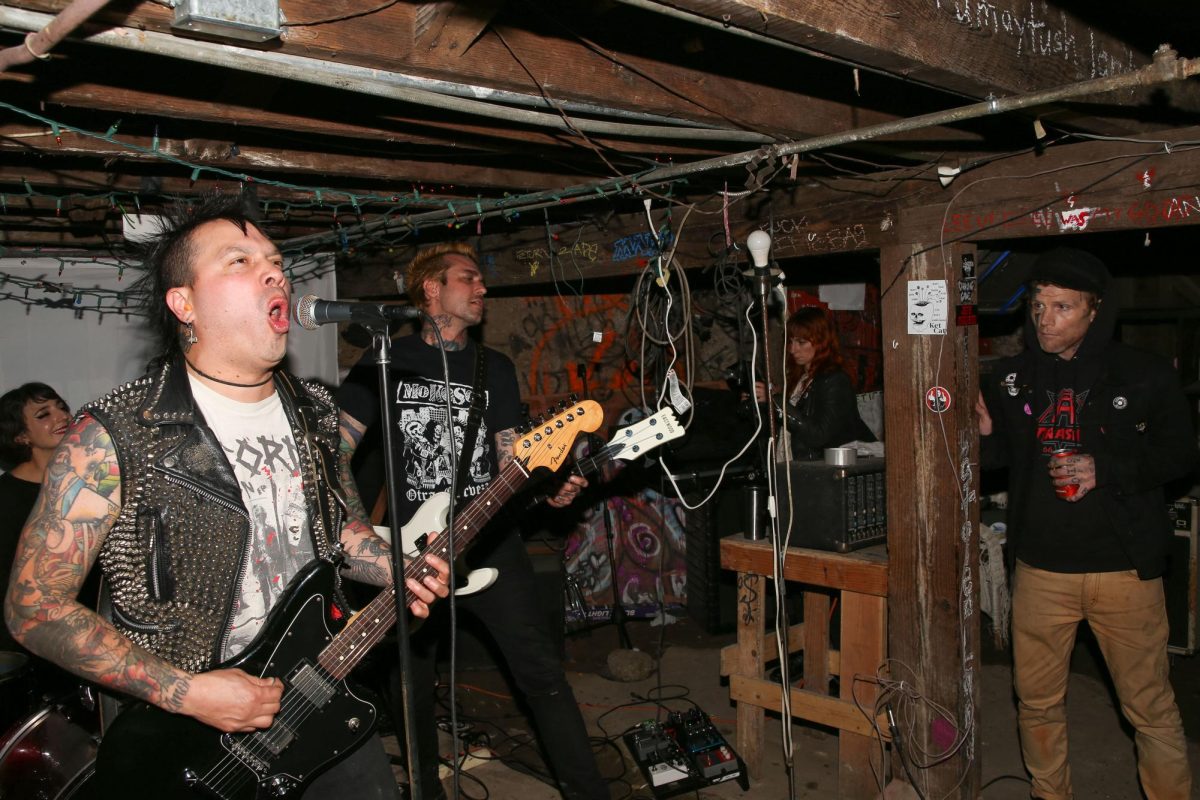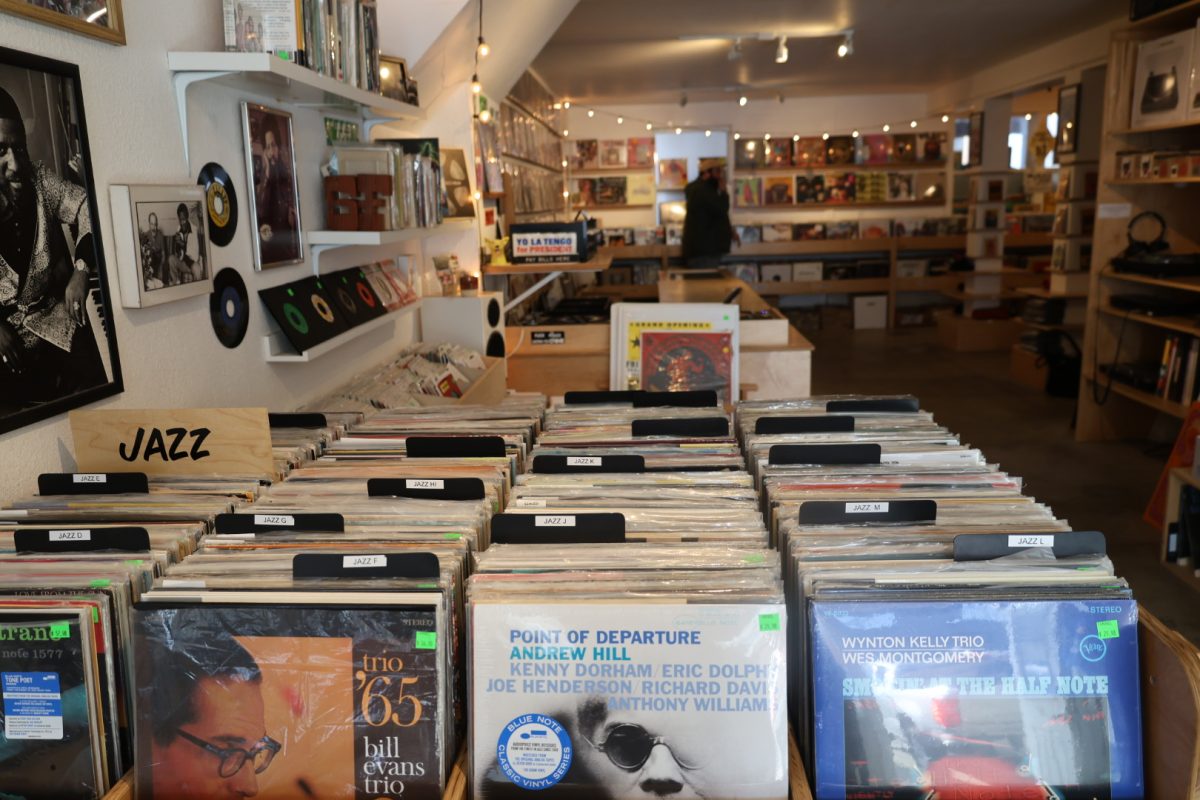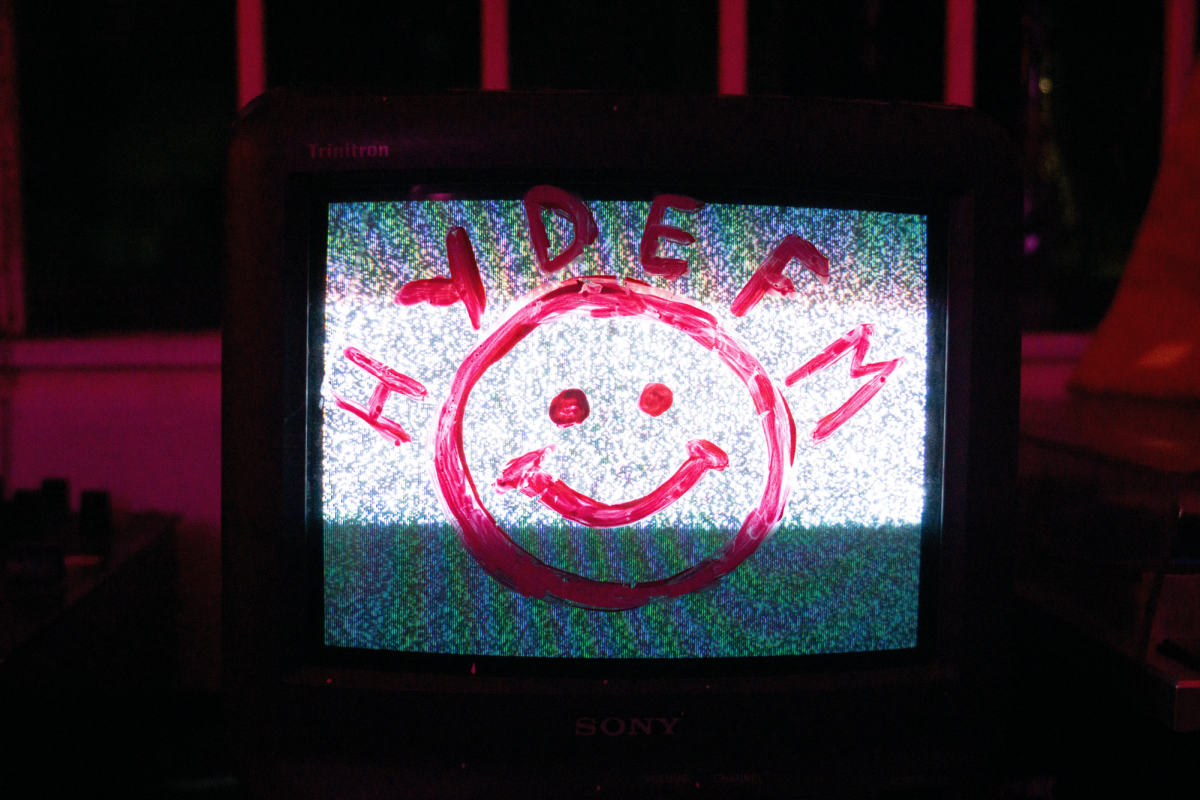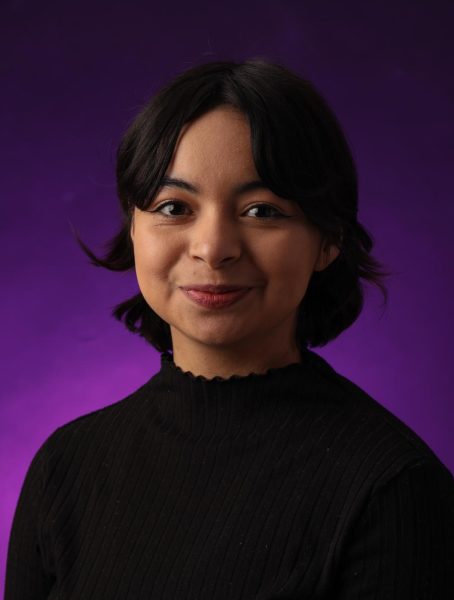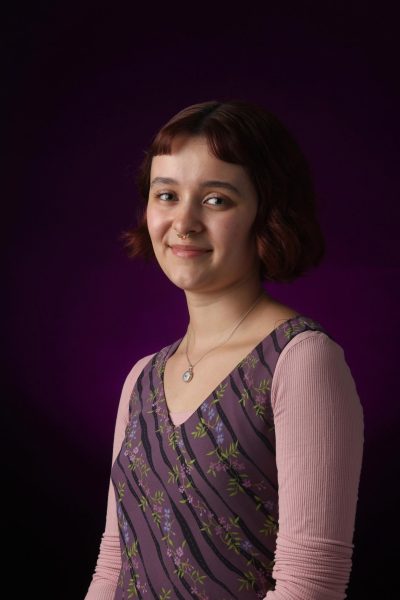On the SF State campus, the beat of a drum loudly echoes out of a single building. There are guitars lined up on the wall, signs and posters of animated figures, bands and a multi-colored flashing fluorescent light. In the corner, there’s an 8-foot-tall Lewis the Pumpkin Ghoul facing the direction of five guys, playing instruments in the center of the carpeted room.
Lead vocalist, Louis Addis, removes his sneakers and kicks them off before standing on the plump couch and strumming at his guitar. This is what it looks like for SF State-based band, Elephant Garden to play together again, weeks after a gig.
“Nowadays, it’s just the school and the music stuff now and that’s pretty much all I want to do right now and for the next foreseeable future,” said Addis.
Previously, Addis was juggling between attending student film sets, and attending band rehearsal before going back to another film set within the same day. He found it difficult to balance student life and band life.
He recalls advice he was given by a CEO from his previous employment, who he’d shared these experiences with. The response? That it was punk rock of him.
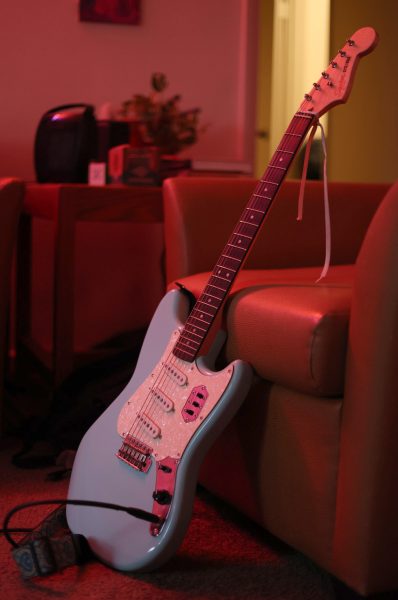
“She was like, ‘You have to be kind of punk rock if you want to make it. You have to be dirty, you have to be tired, you have to be hungry, and you have to be really, really, really tired and upset at times,’” said Addis. “I took that to my mindset. I was like, ‘Everything that I’m doing is worth it, and I have to make it worth it. If it’s not worth it, what am I doing?’”
The Beginning of Elephant Garden
The band was started by Addis, whose own musical journey and interest began at home in Los Angeles. For the industrial design major, growing up, there was never a moment when his father wasn’t playing music loudly out of their home speakers. The Beatles, David Bowie, Maná and Juanes are only a few of the artists Addis was introduced to back then.
His musical interest continued to grow during the COVID pandemic, when he began creating movies. In the process of digging into the film world, he taught himself to play the guitar, drums, piano, bass and how to sing.
During his first week at SF State, he was in the dining hall with roommates when he heard the name ‘Ray Manzarek’ (keyboardist of his favorite band, The Doors). With the turn of a head, he met with student and soon-to-be bassist, Jack Daly.
Together, they’d soon find other like-minded musicians and form Elephant Garden.
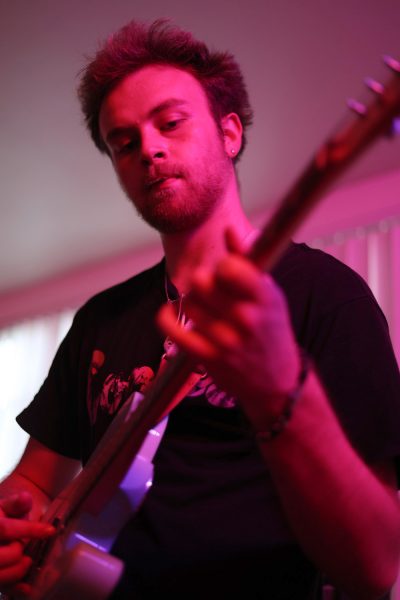
Astro Carlyle is the program director of KSFS, the SF State radio station. They first met Elephant Garden after interviewing them for their radio show called “Heart2Heart”.
“I got to know what it’s like to work with them,” Carlyle said. “I love supporting local musicians, too, because I don’t think they get enough support. It’s hard for them to make it.”
The Elephant Garden Grows Crowds
During a recent show in Lake Merced where Elephant Garden performed, Carlyle sold chips at the event to make some money for the band. The event had a crowd of 60 people, which they describe as a ‘pretty big turnout’. Since Elephant Garden’s debut on the Heart2Heart radio show, they’ve appeared in several events hosted with Carlyle’s assistance, such as KSFS’s version of Tiny Desk concert sessions and their performance featured on Friday Morning Live [FML, a spin on Saturday Night Live SNL].
“It’s a very temporary time period because we’re all students going to the same place,” keyboardist Zekiel Rodriguez said. “I’m just really enjoying the moment.”
He hopes the band branches out of frat parties and plays more shows around the Bay Area, especially at more bars, which is something they have begun to do more of. The band recently played several shows for new crowds in Santa Barbara, having several gigs at brewery Wylde Works.
During a SF State Jazz Jam night hosted at The Depot, Rodriguez was approached by Addis, who complimented his trumpet playing. They then agreed to hang out and have a jam session.
“One day, kind of randomly, he said, ‘Can you meet me at this one room in the music building and bring your trumpet?’ and I was just kind of like, ‘Okay,’ I didn’t question him any further,” Rodriguez said. It was his first semester at SF State, and an opportunity to make friends. When he entered the room, he was introduced to the rest of the members of Elephant Garden.
For Rodriguez, performing for Elephant Garden is less nerve-wracking than playing in his usual academic setting. The band began performing at frat parties, an element Rodriguez says is personal as the crowds are usually people that the band goes to school with.
“I think a little bit of performance anxiety is always present, even with experienced players,” Rodriguez said. “But, I think it’s learning how to deal with it and just knowing at the end of the day we’re getting paid to play with toys.”
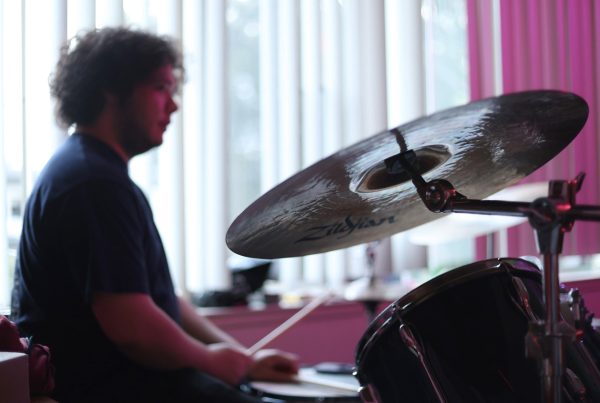
When lead guitarist Calvin Milde auditioned for the band, although nervous, he said he knew what he was doing. In fact, he plays several instruments: the trombone, euphonium, tuba, trumpet, piano, drums, guitar, saxophone and his own invented instrument called the ‘super bone’ — a trombone with both valves and a slide.
“I love doing what we do, just going in front of crowds playing, hopefully good music, like making people dance. That’s kind of what I want out of a band,” Milde said. “But it’s also stressful because we have to transport a drum kit, we have to make sure everything is good, get times from people who are not often very responsive and so forth. There’s a lot of really difficult things that go into just one show.”
Drummer Joshua Wolters is a music major with an emphasis in composition, which comes into play in his role in the band. Although he does less of the songwriting for the band, he uses his knowledge of music to incorporate musical structure and form.
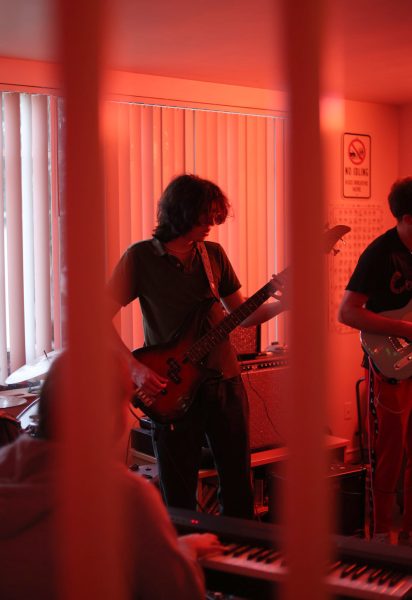
“Literally, like the month the pandemic hit, I had happened to start learning how to compose,” Wolters said.“I’m far from having perfect pitch or anything. I actually was born with hearing problems. I’m 20% deaf in both [ears], actually, but I definitely know music, which is helpful.”
Wolters has seen the band develop over time with drastic changes such as the switching of instruments, adding new songs and adding band members.
“For me personally, now I like it more, but then also it feels a lot better to be a part of, and I think the future looks bright in that regard,” Wolters said. “I just kind of hope that that’s where we’re going in the future. I don’t have any doubt about it, but it looks good.”



